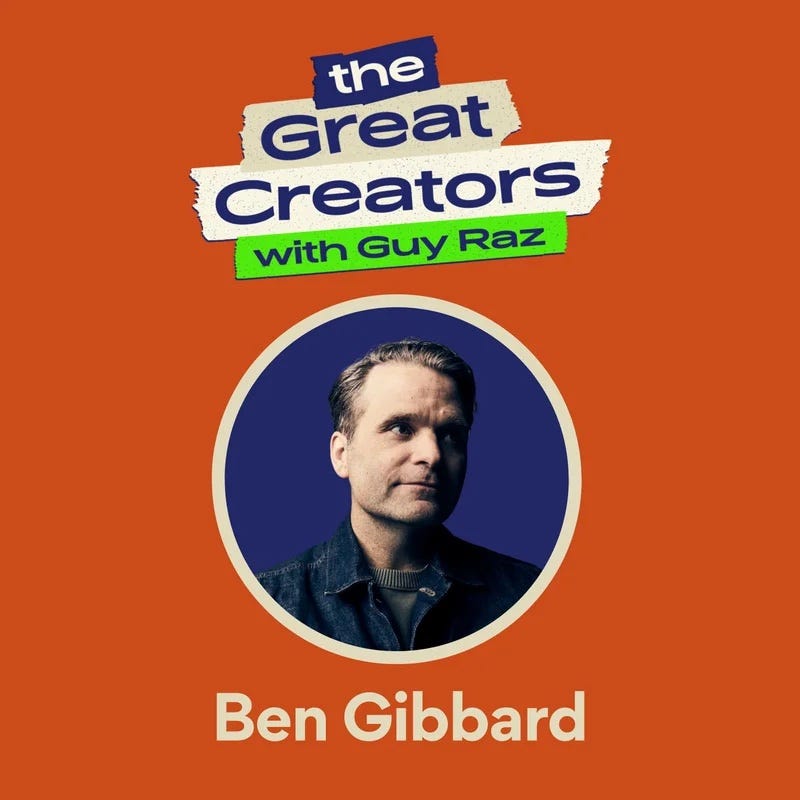
Death Cab for Cutie’s frontman and songwriter Ben Gibbard appeared on The Great Creators podcast to discuss the band and how their most critically acclaimed album was inspired by a card game and near-break up experience.
Listen Now: Ben Gibbard: The Death Cab for Cutie Singer on Making "Transatlanticism" and Defusing Bandmate Tension - The Great Creators with Guy Raz
As stated perfectly by host Guy Raz, Death Cab for Cutie’s 2003 album Transatlanticism and hits like “I Will Follow You Into The Dark” planted the band as, “a part of the indie rock canon of the 2000s.” And while it would go on to reach number 8 on the Independent Albums Billboard chart, Transatlanticism first sprouted out from an inspiration card game.
Created by production icon Brian Eno, the Oblique Strategies card set is meant to inspire and force musicians out of their comfort zone with different prompts. With instructions like “use an unacceptable color,” Gibbard said they are, “not necessarily great directives in and of themselves, but they’re actually misdirectives.” The band worked with the cards very loosely, as he said they would, “take you off of whatever you were ruminating on at that moment and laugh at this card or try to interpret it and fail… and then you’re off on a new path.” However inspiration strikes, the band was willing to run with it, and it clearly worked. But while it may have helped in the brainstorming stages, Eno’s Oblique Strategies game didn’t give the album its magic touch.
Now celebrating its 20 year anniversary, Ben Gibbard actually revealed that Transatlanticism was a result of the band dynamic getting a fresh new start. “I think that we had a better batch of songs then we had for the previous record, due in large part to my ability to have time to actually write them,” Gibbard explained. “But, yeah as far as the band dynamic and recording of the record, I’ve never bought into the idea that… constant conflict makes for great art.” When they did have conflict, which he called a, “big blowup on tour,” it nearly broke them apart. Instead, the band had an epiphany to stay together, Gibbard said everyone, “kind of realized how close we pushed this [band] to the edge before pushing it over.”
“Once we all kind of reaffirmed that we loved doing this, and that we loved each other, and that we wanted to make the best records that we possibly could, we were able to just get down to doing that,” he recalled. And ultimately, the dynamic reset opened the band up to more honest communication and collaboration. “There was a lot more space for everybody to kind of contribute and for [guitarist Chris Walla] to really try a lot of new stuff, and he did such a brilliant job on that record. I just can’t imagine what that record would’ve sounded like if anybody else had made it, it certainly wouldn’t have been as good.”
Hear the full conversation with Ben Gibbard on his The Great Creators with Guy Raz podcast episode above, and on the free Audacy app.
LISTEN on the Audacy App
Sign Up and Follow Audacy
Facebook | Twitter | Instagram
